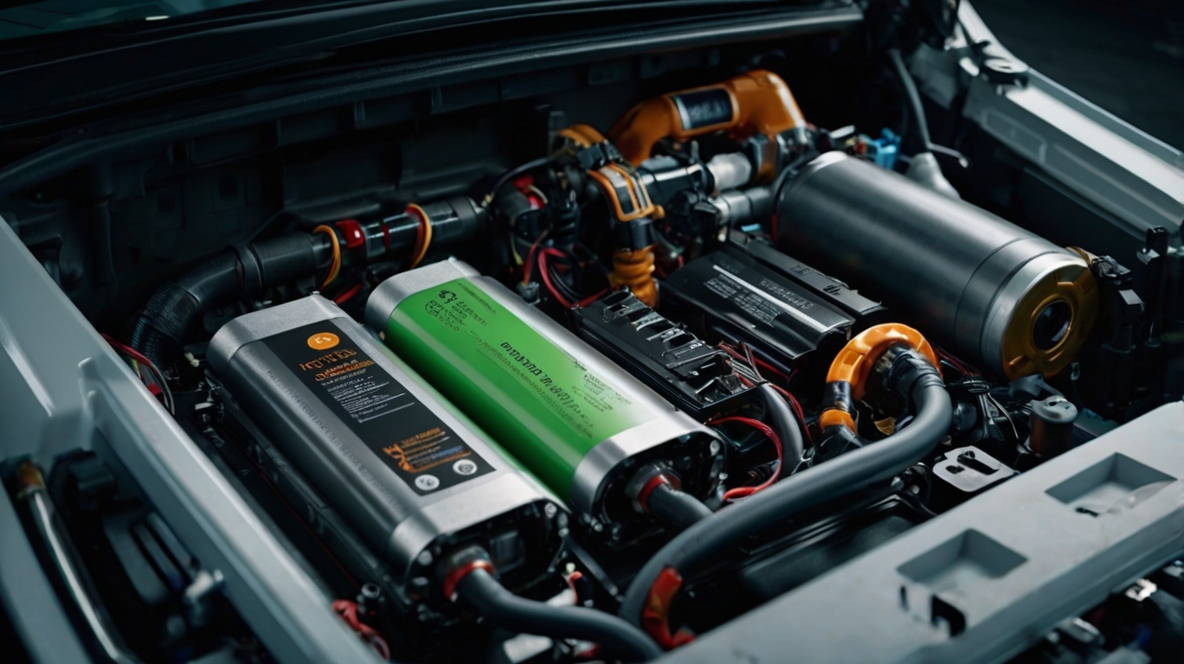
Why Proper Maintenance of the Battery is Important
The battery plays a vital role in your hybrid vehicle's performance. It stores energy generated by regenerative braking and the gasoline engine and provides the electrical power required to drive the vehicle at low speeds. Regular maintenance will help:
- Extend battery life
- Improve vehicle fuel efficiency
- Prevent costly repairs
- Ensure reliable performance in all driving conditions
Essential Maintenance Tips for Your Hybrid Battery
1. Regularly Inspect Your Battery for Wear and Damage
One of the first things you should do is inspect your battery regularly. Checking for any visible wear or damage can prevent larger problems down the line.
- Look for Corrosion: Check battery terminals for any corrosion buildup. Corrosion can reduce electrical conductivity and lead to poor battery performance.
- Inspect Battery Housing: Examine the battery housing to ensure it is securely sealed and that no cracks or leaks are present.
- Check Fluid Levels (if applicable): Some hybrid batteries contain electrolyte fluids. Make sure these levels are consistent and topped up when necessary.
2. Keep the Battery Area Clean
Dirt and grime can accumulate around the battery compartment, which can cause electrical issues.
- Regular Cleaning: Use a damp cloth to clean the battery housing and surrounding areas. Be sure to avoid using too much water, as it can cause electrical shorts.
- Remove Debris: Leaves and other debris can collect in the battery compartment. Keeping this area clean will prevent clogging and maintain optimal battery function.
3. Keep Your Vehicle in Optimal Driving Conditions
Temperature and driving habits can affect your hybrid battery's lifespan.
- Avoid Extreme Temperatures: High temperatures can accelerate battery degradation, while extreme cold can reduce battery efficiency. Park in shaded areas or garages whenever possible.
- Drive Regularly: Hybrid batteries perform best with consistent charging and discharging. Try to drive your vehicle regularly to maintain the battery's health.
4. Check and Test Battery Voltage
Regularly testing your battery's voltage can give you an idea of its overall health.
- Use a Multimeter: Connect a multimeter to your battery terminals to check the voltage. A healthy battery should show a voltage between 7.5 to 8 volts for each module.
- Consult the Manual: Refer to your owner’s manual to determine the recommended voltage ranges and diagnostic procedures specific to your vehicle.
5. Use Regenerative Braking Effectively
Your vehicle’s regenerative braking system helps recharge the hybrid battery.
- Brake Smoothly: Avoid sudden stops, as smooth and gradual braking maximizes the efficiency of regenerative braking and minimizes wear on the system.
- Drive in ECO Mode: Driving in ECO mode not only conserves fuel but also optimizes the regenerative braking system's functionality.
6. Battery Balancing Maintenance
Maintaining the balance between battery cells is crucial for extending battery life.
- Battery Balancer Tools: There are battery balancing devices that ensure all cells in your battery pack are properly aligned and have the same charge levels.
- Regular Maintenance Service: It’s a good idea to have a certified technician perform periodic battery balancing checks, especially if you notice performance issues.
7. Update Your Vehicle’s Software
Sometimes, battery performance and longevity can be improved with software updates.
- Visit Dealerships: Many automakers provide software updates that optimize battery performance. Regularly visit an authorized service center to get updates installed.
- DIY Updates (Advanced Users): If you are tech-savvy, some updates can be downloaded directly from your vehicle’s interface or by connecting a diagnostic tool.
8. Use a Battery Conditioner
A battery conditioner is a device that maintains the health of your hybrid battery by preventing cell imbalance and sulfation.
- Application: These devices are usually placed in the charging system and connected to the battery terminals.
- Prevention is Better: Investing in a battery conditioner can help prolong the battery’s life and prevent costly replacements.
Common Battery Issues and Troubleshooting
1. Battery Not Charging Properly
- Potential Cause: Faulty connectors or a malfunctioning regenerative braking system.
- Solution: Inspect connectors and wires for corrosion or wear, and replace any damaged components.
2. Sudden Drop in Battery Capacity
- Potential Cause: Uneven cell charge or temperature fluctuations.
- Solution: A battery balancing device or a professional service can help restore cell balance and capacity.
3. Error Warning Lights on Dashboard
- Potential Cause: An internal battery fault or sensor issue.
- Solution: Use an OBD-II diagnostic tool to pinpoint the error code and consult the vehicle's manual or a service technician.
Tools and Materials Needed
- Multimeter
- Screwdrivers
- Battery balancing device
- Battery conditioner
- Protective gloves
- Cleaning supplies (cloths, damp cleaning solutions)
- OBD-II diagnostic scanner
- Safety goggles
Estimated Costs of Battery Maintenance
- Battery Balancing Maintenance: Around $300–$600
- Software Updates: Typically free or $50–$100 at a dealership
- Battery Conditioning Devices: $50–$300
- Diagnostic Tools (OBD-II Scanner): $30–$200
- Professional Service for Battery Replacement: $1,500–$3,000
FAQ – Frequently Asked Questions
Q: How often should I inspect my hybrid battery?
- A: It’s recommended to inspect your hybrid battery every 6-12 months to ensure it remains in good condition.
Q: Can extreme weather affect my hybrid battery’s lifespan?
- A: Yes, both high and low temperatures can shorten battery life. Park your vehicle in shaded or covered areas.
Q: Is it possible to replace just one cell in the hybrid battery?
- A: While it’s possible, replacing individual cells is challenging and usually requires professional intervention.
Q: How do I know if my battery is failing?
- A: Symptoms include warning lights on the dashboard, reduced driving range, and poor fuel efficiency.
Q: What is the lifespan of a typical hybrid battery?
- A: With proper maintenance, hybrid batteries can last anywhere between 5 and 10 years.

